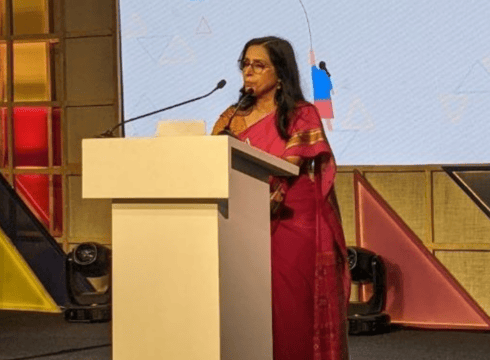The reasons for Dr Gulati’s resignation were not clear; the resignation comes at a time when Google is facing several antitrust cases in India
Dr Gulati previously worked as the joint secretary for NITI Aayog, along with working in several positions at the DoT and the CCI
India is a key market for Google, as it has set aside $10 Bn to invest in India under the Google For India Digitisation Fund
Inc42 Daily Brief
Stay Ahead With Daily News & Analysis on India’s Tech & Startup Economy
Google India’s head of public policy Dr Archana Gulati has reportedly resigned from her post five months after she took up the mantle. The resignation comes at a time when the Silicon Valley-based giant is embroiled in a slew of antitrust cases in India.
According to a Reuters report citing sources, the reasons for Dr Gulati’s resignation were not clear. At Google, Dr Gulati led a team of public policy executives to keep up with various regulatory implications for Google in India.
Dr Gulati previously worked as the joint secretary for the government’s think tank NITI Aayog and has held several government positions before. She is a retired Indian Civil Services officer from the 1989 batch.
She worked as a joint secretary in the digital communications wing of the NITI Aayog between August 2019 and April 2021. Before that, she worked in the Department of Telecommunications (DoT) and the Competition Commission of India (CCI).
Speaking of CCI, the government antitrust watchdog has been looking into Google’s business conduct in various aspects in India, including its Android operating system, its in-app payments policy and Google Pay, its payments service.
Reportedly, the CCI would deliver its verdict on Google’s Play Store policies soon. The CCI has been holding depositions from multiple industry stakeholders including the Alliance of Digital India Federation (ADIF), Match Group and others.
In 2020, Google enforced a 30% commission fee on all purchases made via Google’s Play Store, a decision that was criticised globally for its monopolistic nature. CCI also found Google to be suppressing other payment apps from facilitating payments on Play Store, which further complicated matters for the tech major.
Earlier this month, Google introduced the user choice billing pilot in India in a bid to take some of the heat off. Essentially, user choice billing would allow a user to choose if they want to use Google’s billing service or a third-party billing service.
Google’s payments service, Google Pay, has also come under increased scrutiny alongside PhonePe for its anti-competition behaviour within the UPI ecosystem.
The Reserve Bank of India (RBI) has publicly stated that it is looking into both apps to curb their duopoly. According to the latest figures from the National Payments Corporation of India (NPCI), Google Pay and PhonePe accounted for 83.85% of the total UPI transaction volume in August 2022.
Google is also facing a lawsuit from the online gaming platform WinZO over its new gaming policy. The online gaming platform has called the policy ‘discriminatory’.
India is a key market for Google, as it has set aside $10 Bn to invest in India under the Google For India Digitisation Fund. Sundar Pichai, Google and Alphabet’s CEO recently visited the Indian Embassy in the US, reiterating the US-based tech giant’s stance on supporting India’s digitisation push.
{{#name}}{{name}}{{/name}}{{^name}}-{{/name}}
{{#description}}{{description}}...{{/description}}{{^description}}-{{/description}}
Note: We at Inc42 take our ethics very seriously. More information about it can be found here.


